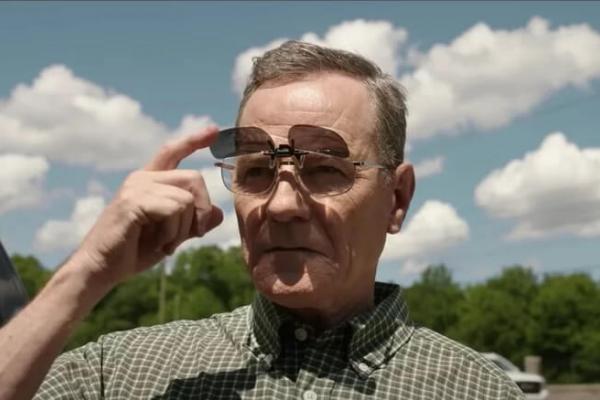I’ve been thinking about the parable of talents since screening the new Paramount+ film, Jerry & Marge Go Large. In Matthew’s telling of the parable of the talents, a rich man goes on a journey after entrusting his wealth to three servants, according to their abilities (25:14-30). The first two servants invest the money they’ve received, doubling their investments to 10 and four talents, respectively. The third servant, fearing the rich man, buries his talent, ostensibly to keep it safe. When the rich man returns, he rewards the first two servants with greater responsibility and an invitation to his “joy.” The third servant is rebuked and his talent is given to the first servant.
In many ways, Jerry & Marge Go Large, which is based on the true story of a retiree who figured out loopholes in the Michigan and Massachusetts lotteries, is a modern-day retelling of the parable of the talents with a couple added twists. In the film, Bryan Cranston and Annette Bening play Jerry and Marge Selbee, a couple from Evart, Mich. Jerry is a math whiz, who has just left his job working for Kellogg’s. Bored and looking for purpose, one day Jerry reads a brochure for the lottery game, WinFall, a game that allows winners to collect smaller prizes, once the jackpot is reached, but not won. Jerry realizes fairly quickly that during WinFall’s “roll down” weeks (when no one has won the six-number jackpot), players could make more money with three, four, and five number tickets. Never one to resist a good puzzle, Jerry decides to play WinFall to test his theory. After losing the first time, he sees that he needs a larger sample size, and makes a profit by buying more tickets. Eventually, Jerry includes Marge and then other members of their community to buy bulk amounts of tickets, yielding a greater profit for all of them. Those profits are then invested in the town, revitalizing it and strengthening community life. Just like the first two servants who invest the money they’ve received, Jerry and Marge take a risk and reap a great reward, not just for themselves, but for their friends and family.
But the Selbees’ aren’t the only ones who figure out the loophole. Tyler, played by Uly Schlesinger, is a smarter-than-thou Harvard student studying the lottery. He discovers the flaw and forms a betting corporation with his dorm-mates. When he realizes that the Selbees are his competition, he attempts to collude with them for greater profit. When they reject his offer, Tyler retaliates, a move that lands him in trouble. Though Tyler didn’t bury his talents like the third servant, his fear — in this case, of missing out on a bigger payout — drives him. Instead of investing in something worthwhile like the Selbees did, he loses his friends’ trust and the chance to use his talents for good.
Leaving aside the morality of whether lotteries should exist and whether one should play them, Jerry & Marge Go Large echoes the parable of the talents, but also upends it in an interesting way. In the film, before he began playing the lottery, Jerry’s great talent for puzzle solving is largely unappreciated. He’s a line manager at a cereal plant, supporting his family, but not realizing his full potential. It takes retirement and becoming more aware of the needs of this town to motivate him to use his gifts. When he does, he uses them to bring his community together and to breathe new life into their town.
Tyler, on the other hand, is cocky about his abilities. Like Jerry, he’s willing to take risks to use his gifts, but for his own renown and profit. Tyler’s pride and avarice, and the way he uses his community for his own enrichment, result in his alienation from his friends and classmates. Jerry and Marge, on the other hand, are surrounded by their friends and family, in the town they helped rebuild. The question at the center of both the parable of the talents and Jerry & Marge Go Large is the same: What will you do with all you’ve been given?
The film also functions as an excellent return on the talents of its cast, resulting in a heartwarming and entertaining experience. It’s obvious from the start that Bryan Cranston and Annette Bening are having a lot of fun with their characters. They’re joined in their joyful acting by Larry Wilmore, Rainn Wilson, and Michael McKean.
Wilson, who plays the clerk at the Massachusetts convenience store where the Selbees buy their tickets, shared his thoughts on the way his Baha’i faith intersected with his work on this film. “I really feel like there is a spiritual component to providing quality entertainment. And that feeds right into Jerry & Marge Go Large, which is a really heart-based, human, uplifting, story about regular Americans coming together,” Wilson said. “It feels very right for these trying times.”
If you’re looking for a good return on your investment of time, energy, and the price of a streaming service, this warm-hearted film is worth the price of admission.
Got something to say about what you're reading? We value your feedback!







